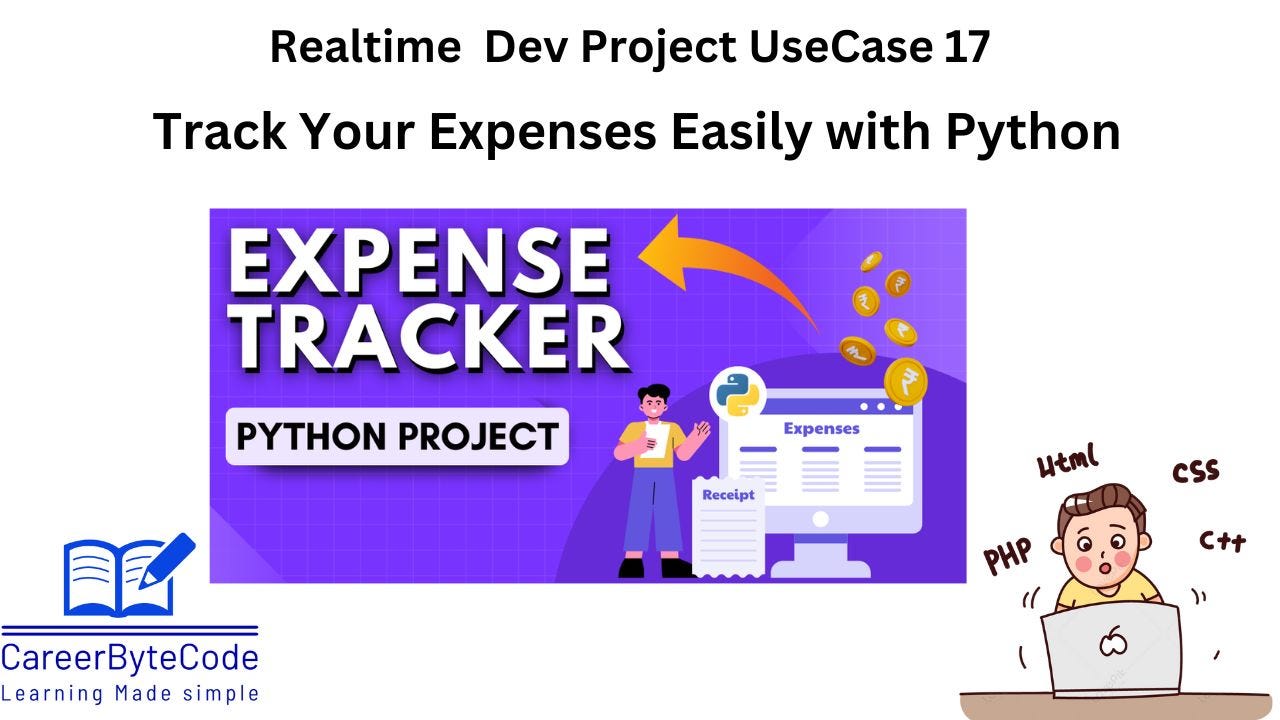Simple Finance Management: Python Expense Tracker Automation
Tracking daily expenses is essential for budgeting, financial planning, and understanding spending habits.
1. Usecase Scenario :
A user wants to keep track of their daily expenses. The user should be able to:
Add new expenses with details like category (e.g., food, transportation), amount, and date.
View a list of all recorded expenses.
Save the data to a file (e.g., expenses.txt) so that the data persists even after the program is closed.
Read the data from the file when the program starts so that the user can continue where they left off.
Actors:
User: The person who adds expenses and views reports.
System: The Python program that handles reading and writing data to a file.
Preconditions:
The user should be able to input expenses (amount, category, date).
The system should be able to store the expenses in a file for future retrieval.
Main Flow:
Add Expense: The user inputs details of the expense (category, amount, and date).
View Expenses: The user can choose to view all recorded expenses.
Save Expenses to File: After each addition, the system saves the expense data to a file.
Read Data on Startup: When the program starts, it loads the previous expenses from the file.
2. Why We Need This Use Case
Tracking daily expenses is essential for budgeting, financial planning, and understanding spending habits. Many individuals struggle to keep track of their expenses, leading to financial mismanagement. A simple expense tracker allows users to log, store, and review their expenses, helping them make informed financial decisions.
With this use case, we will demonstrate how to build a basic expense tracker in Python that allows users to:
Add new expenses (category, amount, and date).
View recorded expenses in a readable format.
Save expense data persistently using file handling.
Load past expenses automatically when the program starts.
This project helps beginners learn file handling, data persistence, and basic Python programming concepts while solving a practical problem.
3. When We Need This Use Case
Personal Finance Management: Individuals tracking daily or monthly expenses.
Small Business Expense Logging: Entrepreneurs managing cash flow.
Freelancer Income & Expense Tracking: Independent workers keeping track of their earnings and spending.
Basic Accounting Needs: Keeping records of transactions for simple bookkeeping.
Learning Python File Handling: Beginners who want to understand reading/writing files in Python.




